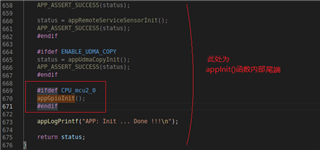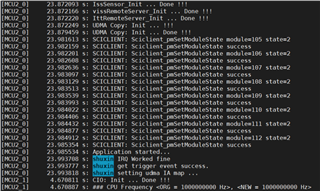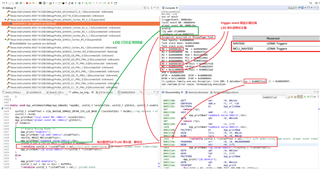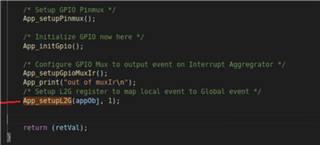Other Parts Discussed in Thread: SYSBIOS
dear experts:
I want use the GPIO input calture function and use the DMA function. can you provide us the examble or demo ?
I also check the path to the example is at <SDK_PATH>/psdk_rtos_auto_j7_07_00_00_11/[pdk_jacinto_07_00_00/packages/ti/drv/gpio/test/led_blink/src/main_led_blink.c . this just only the GPIO interrupt function!
I check that datasheet which also support the GPIO dma , the content description below :
12.1.2.1 GPIO Overview
In addition, the GPIO peripheral can produce host CPU interrupts and DMA synchronization events in
different interrupt/event generation modes.
BR!
thanks!







